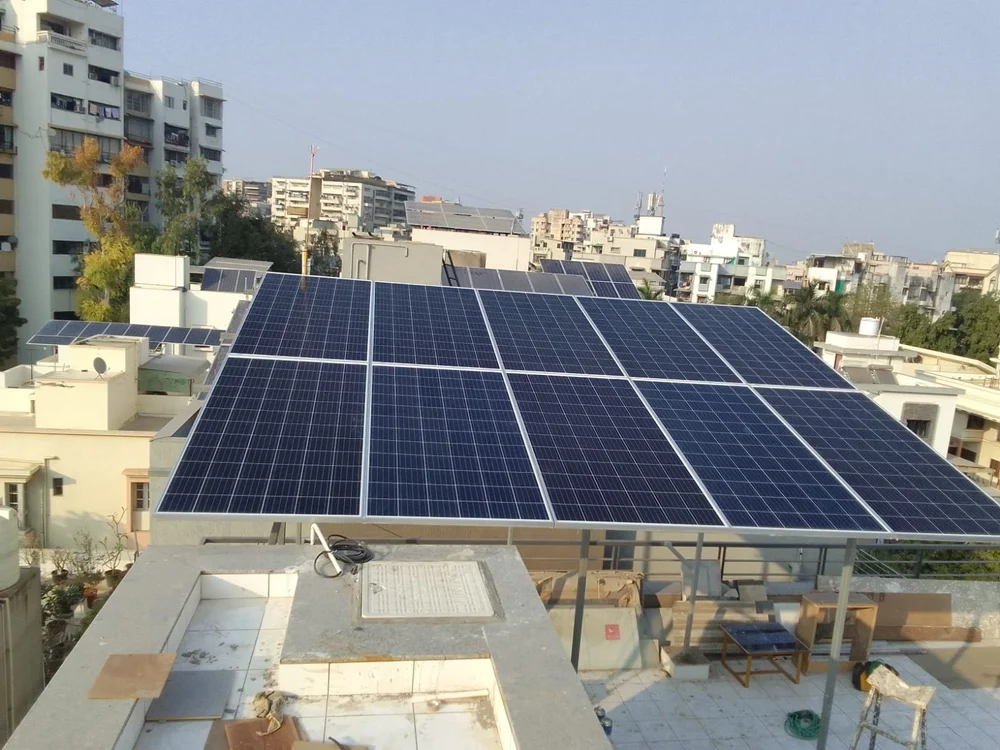Iraq’s Ministry of Electricity announced Thursday it is finalizing agreements with Saudi Arabia’s ACWA Power and UAE’s Masdar to build five solar power stations totaling 2,000 megawatts capacity. The initiative aims to diversify energy sources and address chronic power shortages exacerbated by reduced Iranian gas imports and U.S. sanctions.
Solar Power Partnerships Drive Energy Diversification
Iraq is positioning itself to significantly expand renewable energy capacity through strategic partnerships with Gulf nations. The Ministry of Electricity confirmed it is close to signing contracts with two major regional energy companies to construct large-scale solar installations across the country.
Ministry spokesperson Ahmed Moussa announced that negotiations with Saudi Arabia’s ACWA Power are nearly complete for building a 1,000-megawatt solar plant in Najaf province. Simultaneously, discussions with the UAE’s Masdar are advancing for four additional solar facilities with a combined capacity of 1,000 megawatts. These projects represent a substantial commitment to renewable energy infrastructure in a nation traditionally dependent on fossil fuels.
The solar initiative extends beyond these flagship projects. Construction is already underway on solar installations in five provinces: Basra, Muthanna, Karbala, Babel, and Dhi Qar. Additionally, the government has launched an ambitious program to convert 534 government buildings to solar power, beginning with the Government Palace as directed by Prime Minister Mohammed Shia’ al-Sudani. This conversion will enable government institutions to achieve energy self-sufficiency while reducing pressure on the national grid.
Chronic Power Shortages Intensify Crisis
Iraq faces a severe electricity crisis that has reached critical proportions during the current summer period. Despite the country’s vast oil and gas reserves, chronic power shortages plague the nation, particularly when temperatures soar and cooling demands peak.
The current electricity production stands at approximately 23,000 megawatts, significantly below the country’s potential capacity of 27,000 megawatts. More critically, total national demand approaches 48,000 megawatts during peak periods, creating a staggering shortfall of nearly 19,000 megawatts. This massive gap between supply and demand forces Iraqi citizens to rely heavily on expensive private diesel generators, which often prove inadequate during extended blackouts.
Moussa explained that recent developments have worsened the situation considerably. “The ministry has lost approximately 4,000 megawatts, and this loss during these times affects the hours of supply,” he stated. The reduction stems primarily from decreased Iranian gas deliveries, which have forced the shutdown of several power generation units. Supply hours now vary dramatically not only between different provinces but even between neighborhoods within the same city, depending on fuel availability, temperature conditions, and the efficiency of local distribution networks.
The spokesperson emphasized that while the ministry had adequately prepared its stations and generation units, external fuel shortages have created the current operational challenges. This crisis has become widely recognized across all levels of Iraqi society, from government officials and parliamentarians to ordinary citizens experiencing daily power cuts.
Iranian Gas Dependency Creates Vulnerability
Iraq’s heavy reliance on Iranian energy imports has created significant vulnerabilities, particularly as U.S. sanctions complicate these relationships. For years, the country has depended on Iranian gas to power a substantial portion of its electricity grid, making it susceptible to both sanctions-related disruptions and periodic supply interruptions.
The situation deteriorated markedly in March when Washington revoked a sanctions waiver that had previously allowed Iraq to import electricity directly from Iran. Subsequently, four power transmission lines connecting Iraq to Iran were halted on January 8 due to sanctions enforcement, resulting in the loss of over 1,000 megawatts and significantly affecting provinces such as Diyala, particularly the districts of Al-Khalis and Khanaqin.
In response to these challenges, Prime Minister al-Sudani has convened meetings with energy officials to explore alternative supply sources. The government is actively pursuing multiple strategies, including maximizing utilization of domestic natural gas resources and establishing new electricity import arrangements with Jordan, Turkey, and potentially Turkmenistan.
Current progress on regional interconnections shows promising developments. The electricity connection with Jordan has been activated and is supplying increased power based on prime ministerial directives. Turkey is currently providing 300 megawatts, with plans to double this capacity to 600 megawatts by mid-June. Most significantly, the Gulf electricity interconnection project through Kuwait has reached 93 percent completion and will soon supply power directly to Basra province.
However, some international agreements have encountered obstacles. Iraq signed a contract with Turkmenistan to import 20 million cubic meters of gas during summer months and 10 million in winter, with delivery routed through Iranian territory. Unfortunately, U.S. sanctions on Iran have prevented Iraq’s Trade Bank from opening necessary letters of credit and transferring funds to complete the arrangement. The Minister of Electricity recently visited Turkmenistan to propose a workaround whereby Turkmen gas would be delivered to northern Iran, with Iran providing equivalent volumes to Iraq, though this proposal awaits approval from the Prime Minister’s office.
To support individual energy independence, the government has implemented a citizen solar loan program through the Central Bank and commercial banks. The ministry has vetted approved suppliers and reduced interest rates from 8 percent to 2.5 percent while extending repayment terms from four to seven years, representing substantial government support for renewable energy adoption at the household level.


